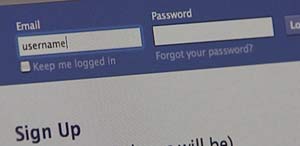
Each Facebook user has on average 130 friends and shares 70 bits of personal information - including home movies and family photos - every month. With 500 million users detailing their moods and passions online, Facebook is more than a social networking site. It's a global phenomenon that's shaping the way people communicate.
Facebook has half a billion users. That's huge for a planet of less than 7 billion people.
In fact, if Facebook were a country, it would be the third most populous nation after China and India.
What grew as the pet project of Mark Zuckerberg, when he was a student at Harvard, has exploded - gaining eight new users ever second for the past 15 months.
Facebook has changed the way many people communicate - letting its millions of users share personal thoughts and images with their network of friends.
Zuckerberg is Facebook's CEO: "People have really gotten comfortable, not only sharing more information and different kinds but being more open and with more people. and that social norm is just something that's changed over time."
And people share a lot. Whole lives play out on Facebook. Births. Graduations. Marriage. Even divorce.
Some experts say that sharing too much information can have downsides - including affecting the way prospective employers may evaluate a job candidate.
And some people are downright negative about it. "I think it's terrible. It's narcissistic," said Facebook user Julia.
Yet, people share personal information on the site 70 times per month on average.
And what was once an online destination only for college students has expanded, says Michael Nelson. He worked at IBM and currently teaches at Georgetown University. "It's grandmas, it's executives, it's politicians. It's everybody. The fastest growing group of users - it's the over sixty group," he said.
Bonnie Speich logs on once a week to keep in touch with family. "Every minute of my grandson's life is on that thing," she said.
Mike Aedenran checks in a lot. "I usually go on about five times a day, five to ten minutes every time," he said.
But not everyone is excited about having an online community of friends. Kevin Sampson said "If they are finding comfort with friends online rather than meeting people, that's pretty sad."
Still, Facebook is so popular that public figures have taken notice. President Barack Obama is credited with using the power of Facebook during his 2008 campaign.
Even Pope Benedict has a profile - sharing updates in eight languages.
And Facebook played a role during Iran's post-election upheaval. Khsro, a graduate student from Iran said "For a lot of Iranians, like a year ago, it became one of the foremost important tools to get news from inside Iran. Right after the elections, basically the international news agencies were not allowed to get news and the first place you would check for the videos from Iran, the protest videos and so on, was just on Facebook."
Information can easily go viral with the click of a mouse, says Nelson. "Now we have this technology to make it really easy for this one community to talk to another community, and all these different conversations happen at the same time. Almost effortlessly," he said.
He says, the future of social media is mobile. More phones will be able to support Facebook giving even more people access to their online communities from the palm of their hand.
Mom finds missing kids with search on Facebook
Privacy concerns hit Facebook, Google
(來源:VOA 編輯:陳丹妮)
